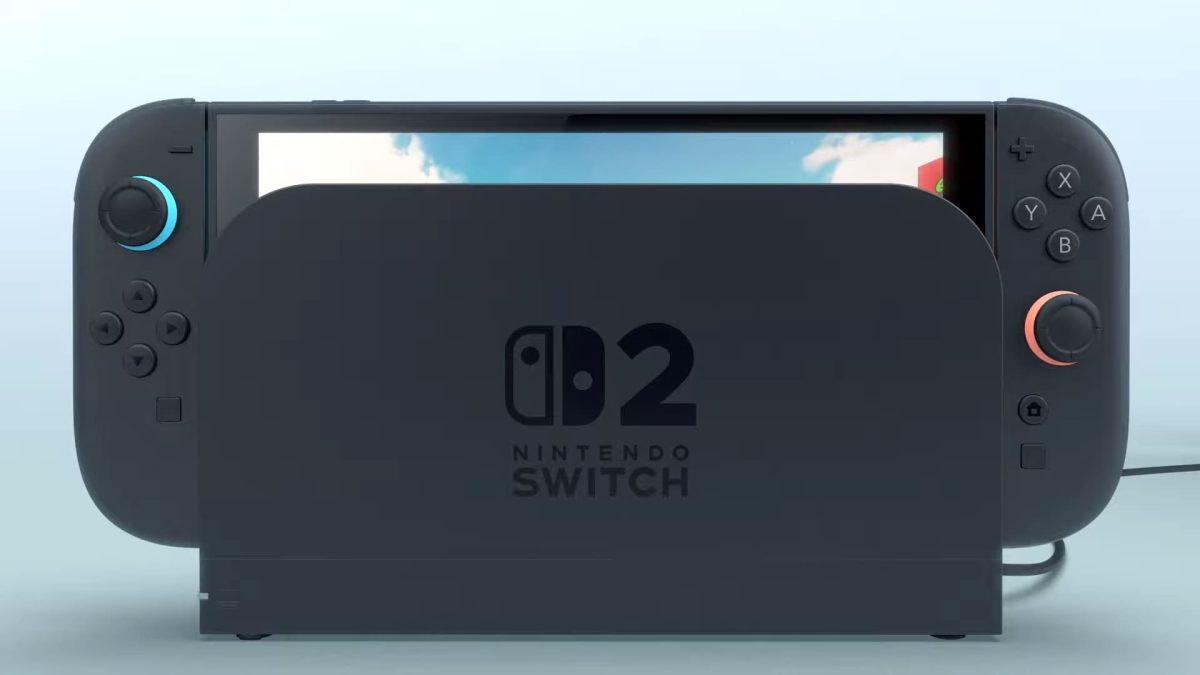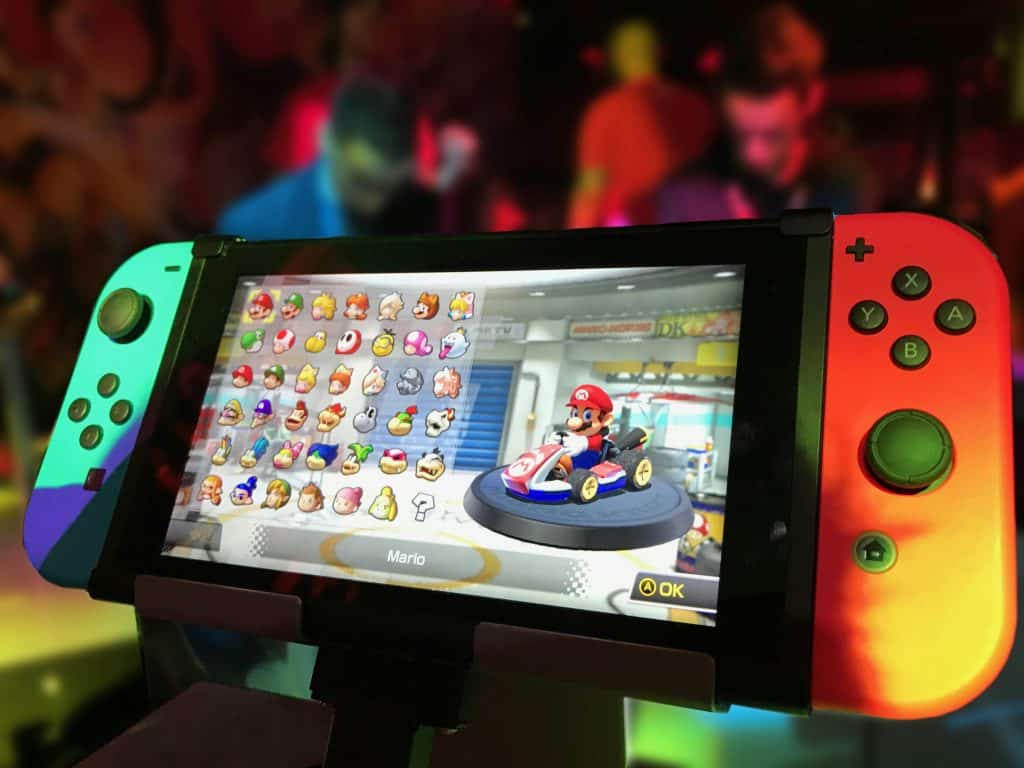Nintendo Switch 2 has been trending for about a week now, ever since Nintendo held an hour-long presentation about the new console. Coming out on June 5, 2025, the system should be a celebration for Nintendo and fans alike. The new features, upgrades to hardware, and overall performance are enough to get players excited. The system is even powerful enough to play some of the more complex games from other consoles, including Final Fantasy VII Remake Intergrade and Elden Ring. Unfortunately, the release has been shrouded by controversies. Perhaps not being talked about enough is the biggest issue: the launch window game catalog.
Nintendo Switch 2 Launch Window Games Highlight Industry Problem

While the Nintendo Direct on April 2, 2025, gave us an hour-long look at the new Nintendo Switch 2 and a slew of games coming to the system, something felt a little off. There seemed to be hype around the games being announced, and there were a lot of nostalgic feelings, so why was there trepidation? When the dust settled and the full list of launch date games was compiled, something stood out. Nearly all the games were remakes and remasters.
Former industry executives picked up on it and slammed Nintendo for not offering more new titles for their next-generation console. Certainly, there were a few new titles that have fans buzzing, including Pokemon Legends Z-A, Mario Kart World, and Donkey Kong Bananza. The vast majority are remakes, remasters, or simply enhanced ports, and Nintendo is charging near full price for them. Worse yet, even games that are given Nintendo Switch 2 upgrades from owned Switch 1 games will cost money to upgrade. It appears to be a way to bleed the consumer of their money by Nintendo, but it highlights a far larger problem.
Game industry executives can pretend that this is a Nintendo issue, but what no one is saying is that it highlights the industry’s current issue. The fact is that gaming companies are struggling right now. Layoff after layoff after layoff are crippling development companies, and entire studios are being forced to shut down. The loss of staff members is slowing down game development, delaying release dates, and sometimes cancelling games altogether. One look at the never-ending development window of Grand Theft Auto 6 sends fans into a state of delirium.
Company Solutions
Companies have tried desperately to offset this by developing cheaper games that can be completed more rapidly, filling the holes left by the lack of new titles. How do they fill them? With remakes, remasters, and reimaginings, exactly like Nintendo is currently doing with the Nintendo Switch 2. This is not a Nintendo issue, but a gaming issue, and it is reflecting the failures of the industry.
As games become more realistic, more in-depth, and more detailed, they also become more expensive to produce. Take Square Enix as an example. The massive development company known for the Final Fantasy and Dragon Quest series were part of the Nintendo Switch 2 launch party, announcing a port of Final Fantasy VII Remake Integrade and a Remaster of Bravely Default. This is not a rare occurrence. Over the past few years, Square Enix has released nearly 20 different remakes and remasters. The company that used to release a mainline Final Fantasy game almost every year now takes 7 years between its mainline titles.
Sega, and to a lesser extent Atlus, is another similar example. They have capitalized on the popularity of JRPGs right now and remastered the entire Yakuza/Like A Dragon series and spin-offs (including Yakuza 0 coming to Nintendo Switch 2). They also re-released most of the Persona series and have also now announced a remaster of RAIDOU for Nintendo Switch 2. The list of examples goes on. The Last of Us Parts 1 and 2 have been remastered so many times that we can’t even keep track. Nintendo exclusive Kirby and Mario series’ games have also been repeatedly remastered, including Super Mario RPG and the Paper Mario series.
Remasters: Good or Bad?
To an extent, all of this is fine. Some classic games should be remastered or remade in a modern style. Nostalgia is fun, and it sells. The Final Fantasy VII Remake series has not only been released to critical acclaim but feels like entirely new games. Bringing Yakuza/Like A Dragon games to be accessible to modern North American markets is fantastic and exposes a phenomenal series to a wider range of people.
The problem is that they need to be combined with new ideas. When remasters and remakes are the ONLY games that are coming out, fans feel like they are being robbed of money for things they have already played. Nostalgia is nice, but gamers need fresh ideas as well to hold their interest. This is the failure of the gaming industry. Perhaps the push to make the most graphically enhanced, massive open-world game that pushes the PlayStation 5 to its limits is not what the consumer really wants.
Could it be that the industry could succeed better if they took their foot off the gas a little and sacrificed some of these overly amazing details in favor of high-quality storylines, gameplay mechanics, and shorter release windows? Is that why indie developers seem to have more success than AAA companies? Their budgets are smaller, but releasing quality games on a lower budget means they do not need the sales goals like those set by Square Enix to turn a profit. Moreover, they can release DLC, sequels, and additional game entries while fans are still engaged. Attention spans are short, and too long of a wait can cause fans to lose interest in a series.
The Final Fantasy golden age took place in the 90s, when games were being pumped out rapid-fire. Sure, the quality was good, but fans were also excited for a new entry. Call of Duty fans are constantly engaged because they know a new game will come out every year, and even at that, they have often been remasters and remakes recently. Nintendo Switch 2 needs to learn from that. The industry is struggling because all they offer nine times out of ten are old games. And that is a colossal failure.
Final Thoughts
Industry experts may want to lay the blame on Nintendo, but the reality is that this is not exclusive to the Nintendo Switch 2. PlayStation 5 and Xbox Series both have the same issues with games in their catalog. The industry cannot sustain itself on the massive production budget some of these AAA games can require, nor can they sustain themselves on only re-released games. They need to find a happy medium if they don’t want the industry to fall apart. Perhaps indie developers are showing other companies the way. If only those companies would listen.


